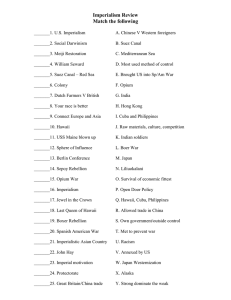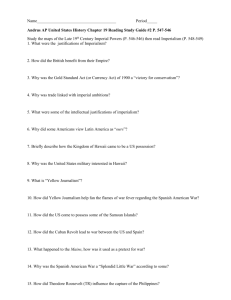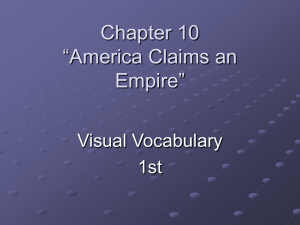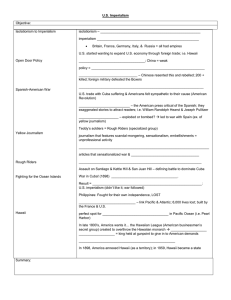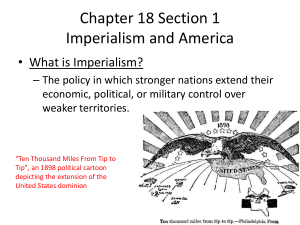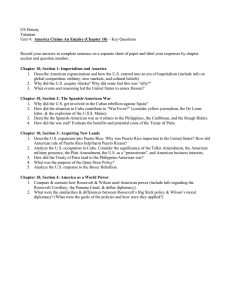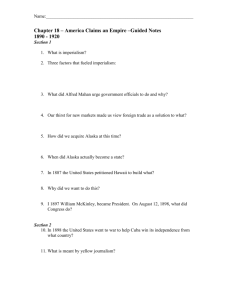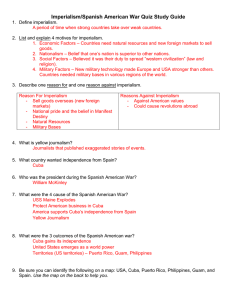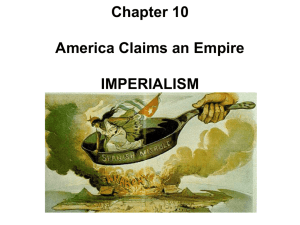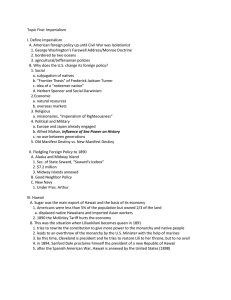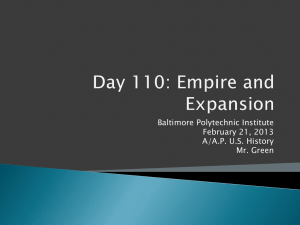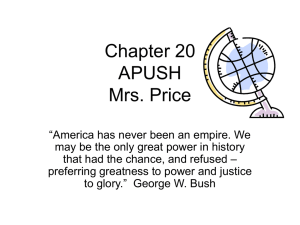File - Novus Legere
advertisement
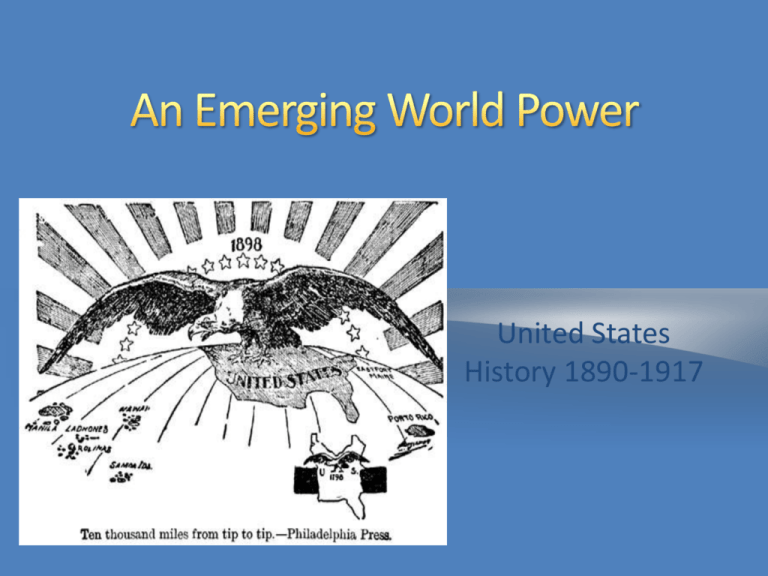
United States History 1890-1917 • Imperialism – Political, military, and economic domination of strong nations over weaker territories – European nations establish colonies in Africa and Asia. Also, Japan had colonies Economic Gain Industrialist want raw materials for industries in their home countries. Entrepreneurs want to sell their goods and invest in new overseas markets. Militarism Nationalism and Social Darwinism Colonial powers seek bases for naval forces that protects their global trade networks. Imperialism feel a moral duty to spread their culture to peoples they consider inferior. 1853- Treaty that opened Japan to trade with the United States 1867- US take possession of the Midway Islands 1875-Increase trade with the Hawaiian Islands 1887- US get the right to build the naval base at Pearl Harbor 1867-US bought Alaska from Russia for $7.2 million 1889- Promotes the construction of the Pan-American Highway System US missionaries had established Christian churches and schools. Americans established sugar cane plantations. They convinced King Kalakaua to amend Hawaii’s constitution to favored them. American planter overthrew Queen Liliuokalani and began the process to annex Hawaii as a US Territory. “A splendid little war”- John Hay, Secretary of States 1898 US Marines capture Guantánamo Bay and the Calvary led by Theodore Roosevelt defeat Spanish troops. Puerto Rico Cuba The Philippines American Troops surprised the Spanish and win with the help of Emilio Aguinaldo and the rebels. US forces disembark on Guánica shore in July 25, 1898. They don’t found a considerable resistance. Treaty of Paris • Spain gave up control of Cuba, Puerto Rico, and Guam. • Spain sold the Philippines to the United State for $20 million. Americans Debate Imperialism • Was necessary to be a economical power? • They were betraying their national values of freedom and equality? America Assumes a New Role in the World • An important turning point in their Foreign Policies
